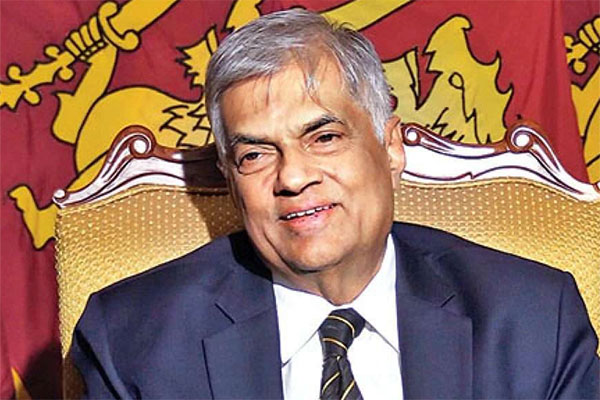In a decision that is certain to enrage demonstrators who have been calling for his removal from office for weeks, Sri Lankan parliament elected former prime minister Ranil Wickremesinghe as president on Wednesday.
After his predecessor fled the country amid escalating protests over an economic crisis marked by severe shortages of essential imports such as fuel, medicine, and food, Wickremesinghe—a six-time former prime minister and important ally of former President Gotabaya Rajapaksa—won a parliamentary vote.
On a scale of 223 votes, he earned 134.
Wickremesinghe remarked in a speech to the legislature immediately after the outcome that although the nation had been “divided along party lines,” the “moment has now arrived to work together.”
Earlier this month, demonstrators made a last-ditch effort to topple the government and put an end to the instability that has engulfed Sri Lanka since March by torching Wickremesinghe’s private mansion and taking control of the presidential palace.
When Rajapaksa departed and Wickremesinghe, the prime minister at the moment, announced his intention to quit in order to make space for a unity administration, the demonstrators looked to have won.
Wickremesinghe’s appointment on Wednesday, however, poses a risk of escalating the situation once further since many demonstrators saw him as being inexorably linked to the Rajapaksa administration. Even some Sri Lanka Podujana Peramuna political party members have expressed their disapproval of his holding the top position.
A small gathering of protestors gathered on the steps of the Presidential Secretariat, the president’s office, while voting to voice their opposition to Wickremesinghe’s candidacy.
When the outcome was revealed, some people yelled indignantly, “Ranil go home.”
Many protestors think that the only way to meet their demands is for the administration to undergo a comprehensive reform, and some said they will continue to demonstrate.
“We won’t relinquish control of the Presidential Secretariat; we’ll just keep working. For 74 years, politicians have let us down “said Dhaniz Ali to CNN. “There will be others who will continue the protest even if they shoot us.”
Wickremesinghe “is not the people’s president,” according to Vrai Cally Balthazaar, who also said that he “is merely an extension of Rajapaksa’s, which is very much about corruption, nepotism, racism, and self serving.”
The 25-year-old expressed her dissatisfaction “but I was not at all surprised by his victory. This was anticipated. The people’s representatives in parliament do not represent the will of the people.”
Kasumi Ranasinghe Arachchige, 26, told Reuters: “I am not shocked, but I am nonetheless disturbed at how dishonest and unjust the system is.
She declared, “We won’t back down, and we won’t accept anything less.” “We’ll battle for what’s rightfully ours.”
The majority of Sri Lankans continue to struggle in their daily lives. Colombo, Sri Lanka’s commercial metropolis, has mostly deserted the streets in favor of long lines of individuals waiting to fill up their petrol tanks. The number of closed enterprises is high, and the grocery shelves are getting bareder.
On Monday, Wickremesinghe made an apparent break with Rajapaksa by telling CNN that the previous government had attempted to hide information about Sri Lanka’s dire financial situation.
Wickremesinghe claimed that Rajapaksa’s administration had refused to acknowledge that Sri Lanka was “bankrupt” and “ought to go to the International Monetary Fund.”
He said, “I would like to let the people know that I am aware of their pain. “Five or ten years are not necessary. Let’s begin stabilizing by the end of the year, and by 2024, let’s have a functional economy that will begin to expand.”
In the poll on Wednesday, the former journalist Dullas Alahapperuma came in second with 82 votes, followed by Anura Kumara Dissanayake with three votes.
Now that Wickremesinghe is attempting to navigate the greatest economic crisis the nation has witnessed in seven decades and maintain afloat, all eyes are on him and continuing bailout negotiations with the International Monetary Fund.

